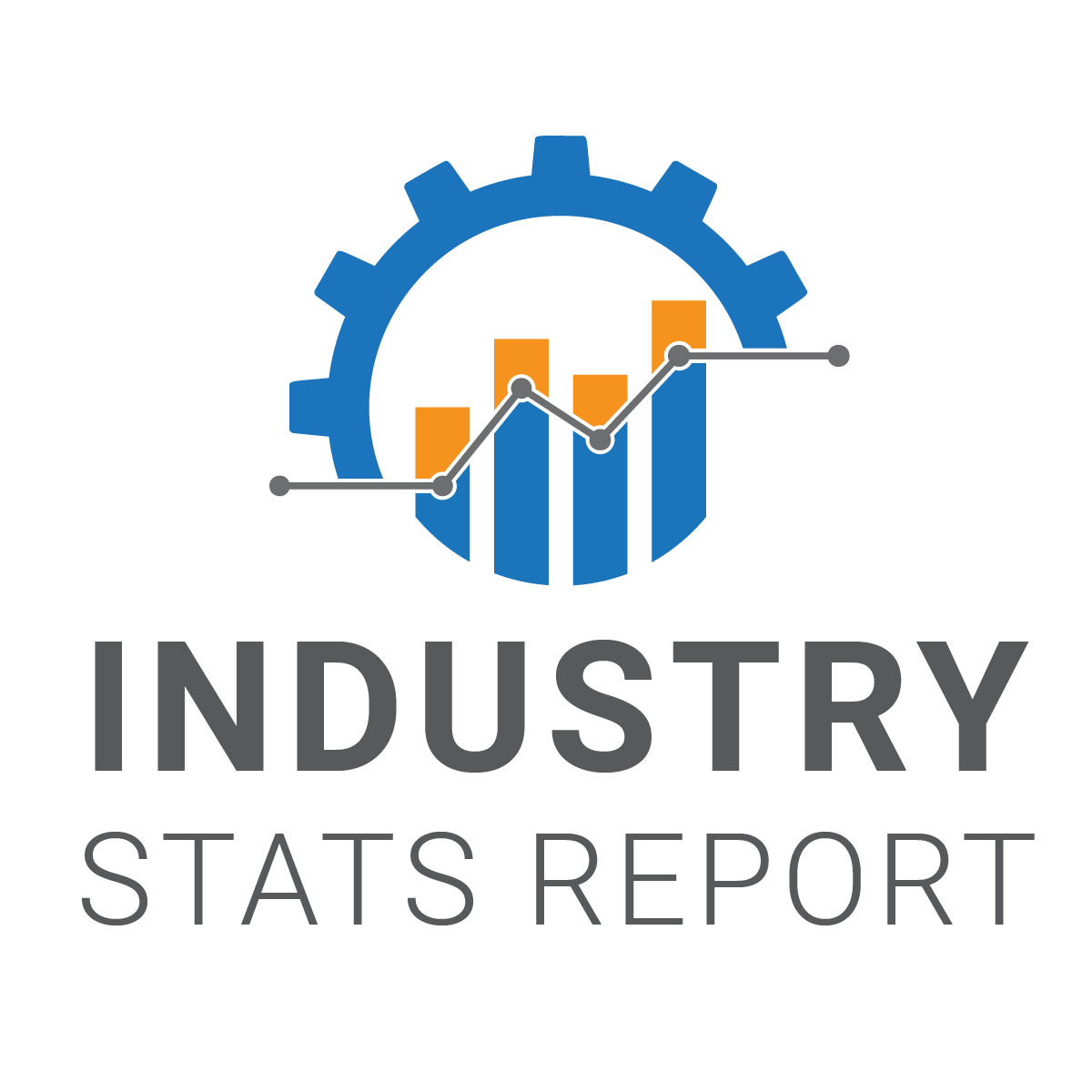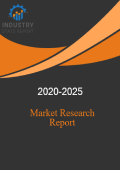
Glycosylated Biosimilars
Global Glycosylated Biosimilars Market: Global Market Size, Trends, Competitive, Historical & Forecast Analysis, 2019-2025
Report ID: BMRC 2203 | Number of pages: 195 | Publish Date: Jan 2020 | Category: Lifesciences and HealthcareThe latest report pertaining to 'Glycosylated Biosimilars Market' provides a detailed analysis regarding market size, revenue estimations and growth rate of the industry. In addition, the report illustrates the major obstacles and newest growth strategies adopted by leading manufacturers who are a part of the competitive landscape of this market.
Glycosylated Biosimilars include mA, EPO etc in this report.
In this report, 2018 has been considered as the base year and 2019 to 2025 as the forecast period to estimate the market size for Glycosylated Biosimilars.
This report studies the global market size of Glycosylated Biosimilars, especially focuses on the key regions like United States, European Union, China, and other regions (Japan, Korea, India and Southeast Asia).
This study presents the Glycosylated Biosimilars sales volume, revenue, market share and growth rate for each key company, and also covers the breakdown data (sales, revenue and market share) by regions, type and applications. history breakdown data from 2014 to 2019, and forecast to 2025.
For top companies in United States, European Union and China, this report investigates and analyzes the production, value, price, market share and growth rate for the top manufacturers, key data from 2014 to 2019.
In global market, the following companies are covered:
Sandoz
Pfizer
Teva Pahrmaceutical
Celltrion
Biocon
Amgen
Samsung Biologics
Mylan
Dr. Reddy's Laboratories
Stada Arzneimittel AG
Market Segment by Product Type
mAb
EPO
Market Segment by Application
Oncology
Chronic Diseases
Autoimmune Diseases
Blood Disorders
Growth Hormone Deficiency
Infectious Diseases
Other DiseasesGlycosylated Biosimilars market report consists of the world’s crucial region market share, size (volume), trends including the product profit, price, value, production, capacity, capability utilization, supply, and demand. Besides, market growth rate, size, and forecasts at the global level have been provided. The geographic areas covered in this report: North America (United States, Canada and Mexico), Europe (Germany, France, UK, Russia and Italy), Asia-Pacific (China, Japan, Korea, India and Southeast Asia), South America (Brazil, Argentina, Colombia etc.), Middle East and Africa (Saudi Arabia, UAE, Egypt, Nigeria and South Africa).
This research study involved the extensive usage of both primary and secondary data sources. The research process involved the study of various factors affecting the industry, including the government policy, market environment, competitive landscape, historical data, present trends in the market, technological innovation, upcoming technologies and the technical progress in related industry, and market risks, opportunities, market barriers and challenges. Top-down and bottom-up approaches are used to validate the global market size market and estimate the market size for manufacturers, regions segments, product segments and applications (end users). All possible factors that influence the markets included in this research study have been accounted for, viewed in extensive detail, verified through primary research, and analyzed to get the final quantitative and qualitative data. The market size for top-level markets and sub-segments is normalized, and the effect of inflation, economic downturns, and regulatory & policy changes or other factors are not accounted for in the market forecast. This data is combined and added with detailed inputs and analysis from BrandEssenceResearch and presented in this report.
After complete market engineering with calculations for market statistics; market size estimations; market forecasting; market breakdown; and data triangulation, extensive primary research was conducted to gather information and verify and validate the critical numbers arrived at. In the complete market engineering process, both top-down and bottom-up approaches were extensively used, along with several data triangulation methods, to perform market estimation and market forecasting for the overall market segments and sub segments listed in this report. Extensive qualitative and further quantitative analysis is also done from all the numbers arrived at in the complete market engineering process to list key information throughout the report.
The study objectives are:
To analyze and research the Glycosylated Biosimilars status and future forecast in United States, European Union and China, involving sales, value (revenue), growth rate (CAGR), market share, historical and forecast.
To present the key Glycosylated Biosimilars manufacturers, presenting the sales, revenue, market share, and recent development for key players.
To split the breakdown data by regions, type, companies and applications
To analyze the global and key regions market potential and advantage, opportunity and challenge, restraints and risks.
To identify significant trends, drivers, influence factors in global and regions
To analyze competitive developments such as expansions, agreements, new product launches, and acquisitions in the market
In this study, the years considered to estimate the market size of Glycosylated Biosimilars are as follows:
History Year: 2014-2018
Base Year: 2018
Estimated Year: 2019
Forecast Year 2019 to 2025
Table of Content 1. Chapter - Report Methodology 1.1. Research Process 1.2. Primary Research 1.3. Secondary Research 1.4. Market Size Estimates 1.5. Data Triangulation 1.6. Forecast Model 1.7. USP’s of Report 1.8. Report Description 2. Chapter – Global Glycosylated Biosimilars Market Overview: Qualitative Analysis 2.1. Market Introduction 2.2. Executive Summary 2.3. Global Glycosylated Biosimilars Market Classification 2.4. Market Drivers 2.5. Market Restraints 2.6. Market Opportunity 2.7. Glycosylated Biosimilars Market: Trends 2.8. Porter’s Five Forces Analysis 2.8.1. Bargaining Power of Suppliers 2.8.2. Bargaining Power of Consumers 2.8.3. Threat of New Entrants 2.8.4. Threat of Substitute Product and Services 2.8.5. Competitive Rivalry within the Industry 2.9. Market Attractiveness Analysis 2.9.1. Market Attractiveness Analysis by Segmentation 2.9.2. Market Attractiveness Analysis by Region 3. Chapter - Global Glycosylated Biosimilars Market Overview: Quantitative Analysis 3.1. Global Glycosylated Biosimilars Market Revenue (USD Million), Market Share (%) and Growth Rate (%), 2014- 2025 3.2. Global Glycosylated Biosimilars Market Revenue Market Share (%), 2014- 2025 3.3. Global Glycosylated Biosimilars Market Sales (Number of Units), Market Share (%) and Growth Rate (%), 2014- 2025 3.4. Global Glycosylated Biosimilars Market Sales Market Share (%), 2014- 2025 4. Chapter – Global Glycosylated Biosimilars Market Analysis: Segmentation By Type 5. Chapter – Global Glycosylated Biosimilars Market Analysis: Segmentation By Application 6. Chapter - Global Glycosylated Biosimilars Market Analysis: By Manufacturer 6.1. Global Glycosylated Biosimilars Market Revenue (USD Million), by Manufacturer, 2014 - 2025 6.2. Global Glycosylated Biosimilars Market Share (%), by Manufacturer, 2018 6.3. Global Glycosylated Biosimilars Market Sales (Number of Units), by Manufacturer, 2014 - 2025 6.4. Global Glycosylated Biosimilars Market Share (%), by Manufacturer, 2018 6.5. Global Glycosylated Biosimilars Market Price (USD/Unit), by Manufacturer, 2014 - 2025 6.6. Global Glycosylated Biosimilars Market Revenue Growth Rate (%), by Manufacturer, 2014 – 2025 6.7. Merger & Acquisition 6.8. Collaborations and Partnership 6.9. New Product Launch 7. Chapter –Glycosylated Biosimilars Market: Regional Analysis 7.1. North America 7.1.1. North America Glycosylated Biosimilars Market Revenue (USD Million) and Growth Rate (%), 2014 – 2025. 7.1.2. North America Glycosylated Biosimilars Market Revenue (USD Million) By Country, 2014 – 2025. 7.1.3. North America Glycosylated Biosimilars Revenue Market Share (%) By Country, 2014 – 2025. 7.1.4. North America Glycosylated Biosimilars Market Revenue (USD Million) and Growth Rate, By Market Segmentation, 2014 – 2025. 7.1.5. North America Glycosylated Biosimilars Market Revenue (USD Million), Market Share (%) and Growth Rate, By Market Segmentation, 2014 – 2025. 7.1.6. North America Glycosylated Biosimilars Market Sales (Number of Units) and Growth Rate (%), 2014 – 2025. 7.1.7. North America Glycosylated Biosimilars Market Sales (Number of Units) By Country, 2014 – 2025. 7.1.8. North America Glycosylated Biosimilars Sales Market Share (%) By Country, 2014 – 2025. 7.1.9. North America Glycosylated Biosimilars Market Sales (Number of Units) and Growth Rate, By Market Segmentation, 2014 – 2025. 7.1.10. North America Glycosylated Biosimilars Market Sales (Number of Units), Market Share (%) and Growth Rate, By Market Segmentation, 2014 – 2025. 7.2. Europe 7.3. Asia Pacific 7.4. Latin America 7.5. Middle East & Africa 8. Chapter - Company Profiles




